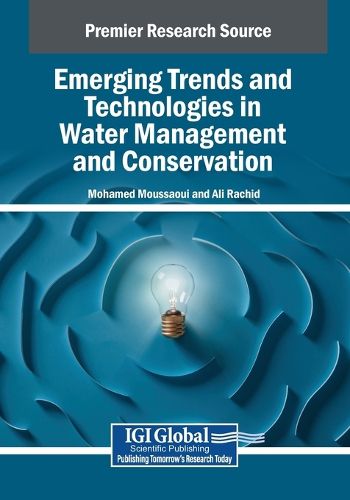Readings Newsletter
Become a Readings Member to make your shopping experience even easier.
Sign in or sign up for free!
You’re not far away from qualifying for FREE standard shipping within Australia
You’ve qualified for FREE standard shipping within Australia
The cart is loading…






This title is printed to order. This book may have been self-published. If so, we cannot guarantee the quality of the content. In the main most books will have gone through the editing process however some may not. We therefore suggest that you be aware of this before ordering this book. If in doubt check either the author or publisher’s details as we are unable to accept any returns unless they are faulty. Please contact us if you have any questions.
Water is a precious and vital resource for human survival and well-being. However, increasing populations has led to a growing demand, resulting in excessive water use for domestic, agricultural, commercial, and industrial purposes. This overuse, combined with the effects of climate change and pollution, jeopardizes environmental sustainability and sustainable development. Faced with these challenges, it is imperative to adopt innovative approaches for the treatment, management, and preservation of water resources that go beyond conventional methods. Further exploration into these areas may ensure equitable access to high-quality water and safeguard a sustainable future for future generations. Emerging Trends and Technologies in Water Management and Conservation provides a comprehensive exploration of the latest developments in emerging trends and technologies applied to water management, treatment, and conservation of water resources. It highlights the most significant trends in this field, with a primary focus on digital water management and the application of artificial intelligence (AI), the Internet of Things (IoT), and intelligent technologies. This book covers topics such as environmental science, digital technology, and water purification, and is a useful resource for environmental scientists, civil engineers, computer engineers, conservationists, academicians, and researchers.
$9.00 standard shipping within Australia
FREE standard shipping within Australia for orders over $100.00
Express & International shipping calculated at checkout
This title is printed to order. This book may have been self-published. If so, we cannot guarantee the quality of the content. In the main most books will have gone through the editing process however some may not. We therefore suggest that you be aware of this before ordering this book. If in doubt check either the author or publisher’s details as we are unable to accept any returns unless they are faulty. Please contact us if you have any questions.
Water is a precious and vital resource for human survival and well-being. However, increasing populations has led to a growing demand, resulting in excessive water use for domestic, agricultural, commercial, and industrial purposes. This overuse, combined with the effects of climate change and pollution, jeopardizes environmental sustainability and sustainable development. Faced with these challenges, it is imperative to adopt innovative approaches for the treatment, management, and preservation of water resources that go beyond conventional methods. Further exploration into these areas may ensure equitable access to high-quality water and safeguard a sustainable future for future generations. Emerging Trends and Technologies in Water Management and Conservation provides a comprehensive exploration of the latest developments in emerging trends and technologies applied to water management, treatment, and conservation of water resources. It highlights the most significant trends in this field, with a primary focus on digital water management and the application of artificial intelligence (AI), the Internet of Things (IoT), and intelligent technologies. This book covers topics such as environmental science, digital technology, and water purification, and is a useful resource for environmental scientists, civil engineers, computer engineers, conservationists, academicians, and researchers.